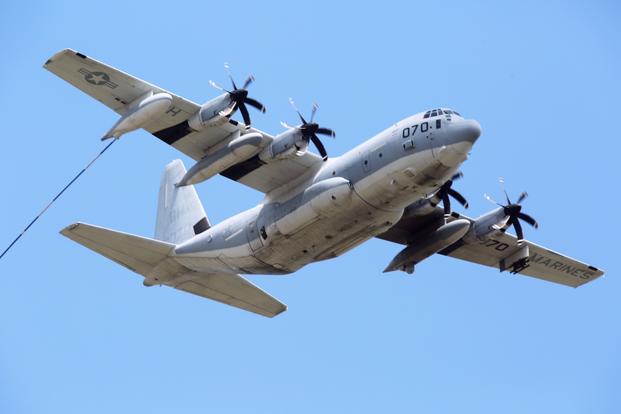Five troops experienced "decompression sickness" after a C-130J cargo plane lost pressure during a training mission in California, the service said.
The incident occurred around 11:20 a.m. Tuesday while the aircraft was flying at an altitude of 21,000 feet during a regular exercise from Marine Corps Station Miramar, according to a statement released Thursday from the installation.
Four Marines and a sailor from "displayed symptoms of decompression sickness" on Wednesday and were treated at Naval Medical Center San Diego and released, according to the statement.
They were among 46 passengers aboard the four-engine turboprop aircraft from Marine Aerial Refueler Transport Squadron (VMGR-352) at the time of the incident, it states.
The incident, which is under investigation, comes less than a week after Marine Corps leaders ordered all U.S. aviation units to observe a 24-hour "operational reset" in the wake of deadly accidents.
On Aug. 5, an MV-22 Osprey carrying 26 personnel crashed off Queensland, Australia, shortly after launching from an amphibious assault ship. Three of the Marines aboard were lost in the crash.
On July 10, a KC-130T carrying seven Marine Corps Forces Special Operations Command troops and a Marine crew of 9 went down in Mississippi after a transport mission, killing all 16 aboard. Marine Forces Reserve has since grounded all 12 KC-130T aircraft still in service for the Marine Corps; that grounding continues.
The operational reset -- the second in two years -- requires a halt in flight operations so officials can assess safety standards and readiness.
However, not all units stopped flying right away -- Commandant Gen. Robert Neller said commanders could decide when to order the stand down over a period of two weeks.
-- Hope Hodge Seck contributed to this report.
-- Brendan McGarry can be reached at brendan.mcgarry@military.com. Follow him on Twitter at @Brendan_McGarry.




























